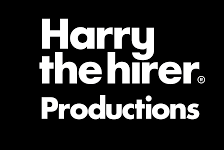LISTEN HERE
21 May 2024
GET BACK TO WHERE YOU ONCE BELONGED
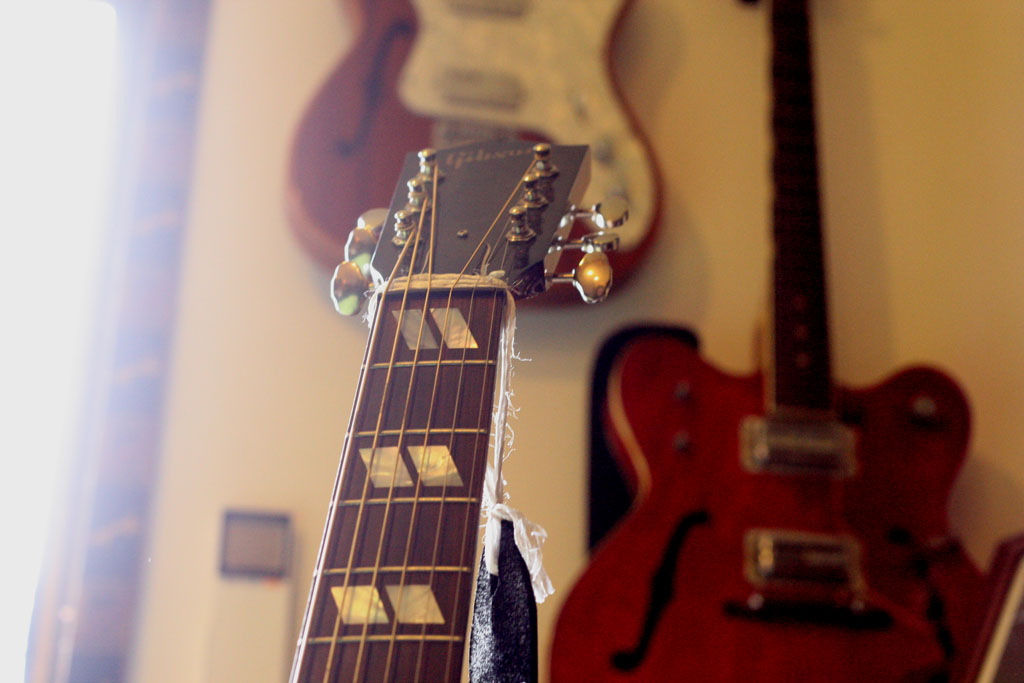
Subscribe to CX E-News
Too many of us start out playing music with stars in our eyes, only to then ditch our instruments in favour of a new life in the wider audio industry. Meanwhile our instruments lie forgotten in a closet somewhere, trapped in their road cases, rusting and leaking battery acid. Let’s open them up and turn them back on before it’s too late!
This article goes out to all the adults among the CX readership who grew up playing music, but who now mostly only talk about it, sell audio gear, produce music for others, or work in a bank.
If you still own the musical instruments you once played, and still contemplate the day when you might pick up them up again, today is that day. The time has come.
Now I know this idea seems preposterous. Frankly, I can already predict your response: “Andy, I wish I could, but I just don’t have a spare second… let alone today!”
I hear you, really I do, but I suspect it’s not true. In most cases we grow separated from our instruments for a multitude of good reasons, but often the road back to them is a quagmire of bad excuses, questionable logic, irrational fears and unrealistic expectations.
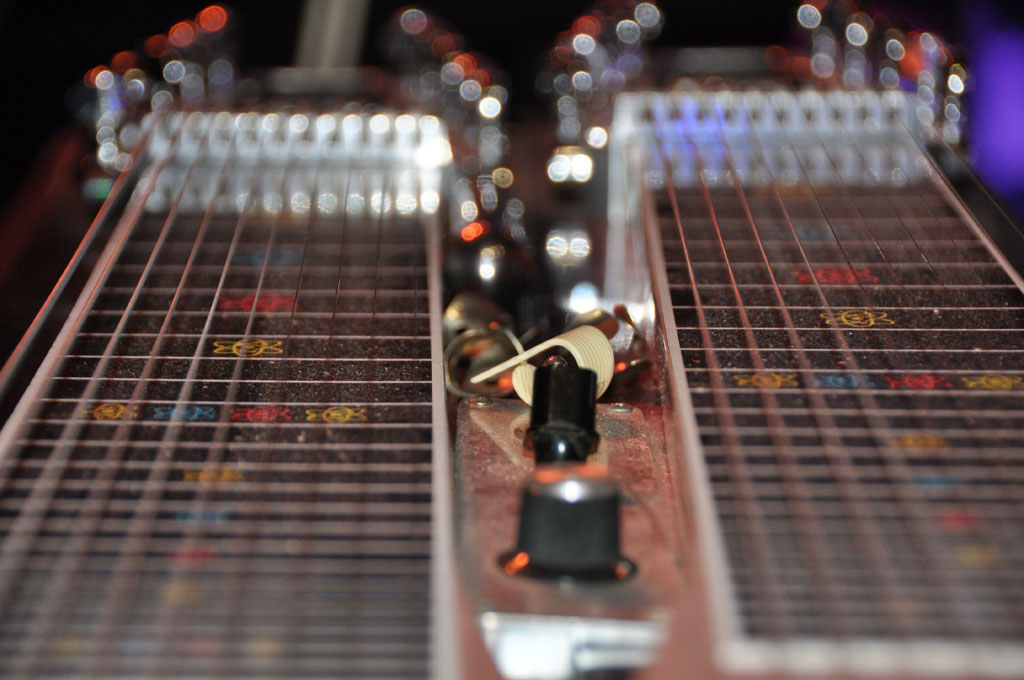
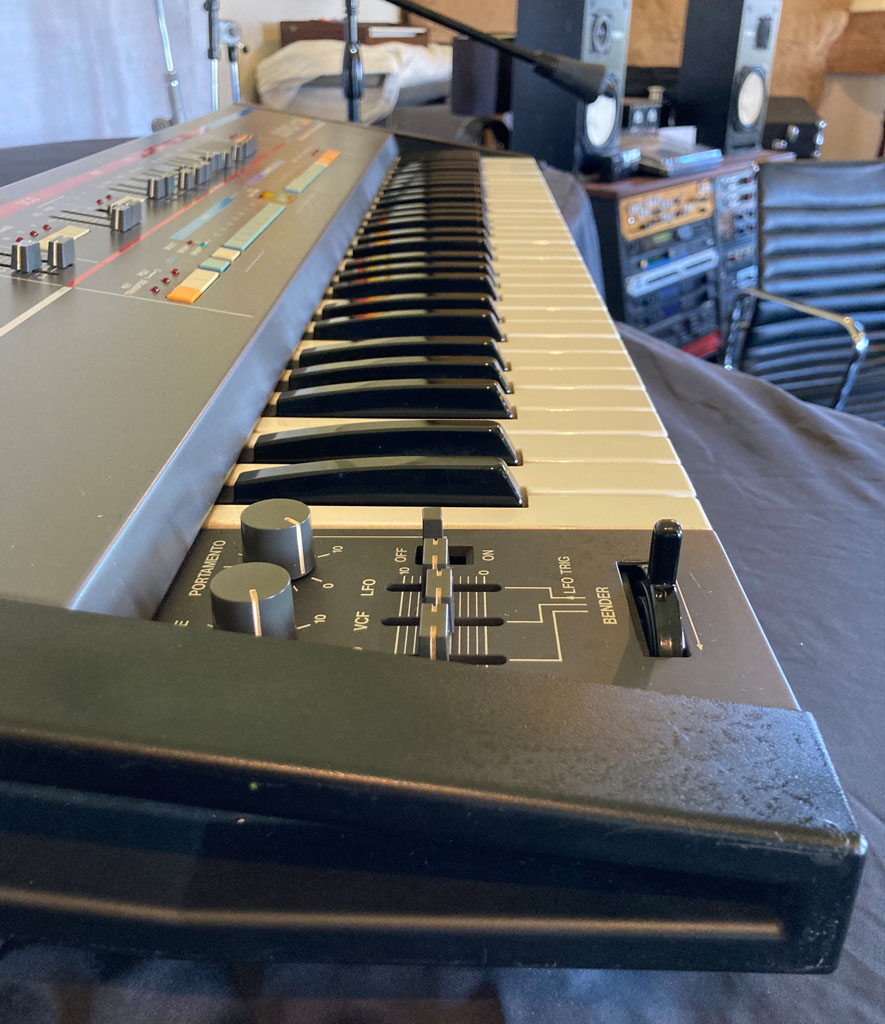
But it shouldn’t be this way. Getting back to playing an instrument shouldn’t be so hard, particularly if, deep down, you still identify with that person who once walked so confidently on stage and played music to 10, 100, or perhaps even 1000+ adorning fans, or made amazing synth patches and home studio recordings that sounded great but never saw the light of day.
For anyone who’s become estranged from their collection of beloved, dusty, and in some cases dysfunctional instruments, consider this article the first stepping-stone back to the creative life you once enjoyed.
But don’t misunderstand my logic here. I’m not for a moment suggesting you go back in time, regress to the mindset of a teenager, or try to rekindle the old band chemistry. I’m simply proposing getting you, the adult, back in touch with your musical instruments, with (dare I say it) no strings attached or grand plans in place for conquering the world. This is simply an exercise in enjoying the exploration of sound for its own sake, rather than proving to others what you’re capable of, how talented you are (or once were), or why you’re going to be ‘HUGE!’ this time around. This is an ego-less trip with no destination, for which at least the capacitors and switches in that old synth of yours will be profoundly grateful.
Million To One
While I know it seems there are a million different reasons why we grow apart from, and eventually stop playing, our musical instruments, in truth there’s typically only one… we never actually stop. For most musicians, our playing days never formally end. At some point along the way we simply put down our guitar, switch off those (now vintage classic) synths or pack up that drum kit, and as fate would have it, never pick them up again. It’s only when we look in the rear-view mirror later that we’re able to pinpoint a specific moment in time and say, “Wow, actually that was the last time I ever played my Prophet 5… if only I’d known then that it would be the last time I turned it on…”
Somehow time just separates us from our creative life like slices of bread, and before we realise what’s happened, a year, or a decade has gone by… sometimes three!
Consequently, there are some very powerful mixed emotions at play around this separation anxiety that can make picking up your instruments again feel harder to contemplate than quantum physics. Eventually this apprehension can develop into a total mental block, after which time, the prospect of ever playing your instruments again starts to feel like a desperately remote concept.
It’s indeed quite common for people to feel genuine dread around the prospect of opening their old road cases. Often that old guitar, your favourite ’80s poly synth, or your first ever classical wind instrument triggers so many nostalgic feelings and memories from the time when it was played, that the object behaves more like a time portal than a musical instrument. It’s a confronting and often-times debilitating feeling that many adults run a mile from. Being confronted with the passing of time by an onrush of memories, discovering in that same instant just how much time has elapsed since you last played music – before life got in the way – can be a jolting, unpleasant experience. No wonder so many people fear opening up the old road case again to see what’s inside.
Let’s confront it together then shall we… and make it easy on ourselves.
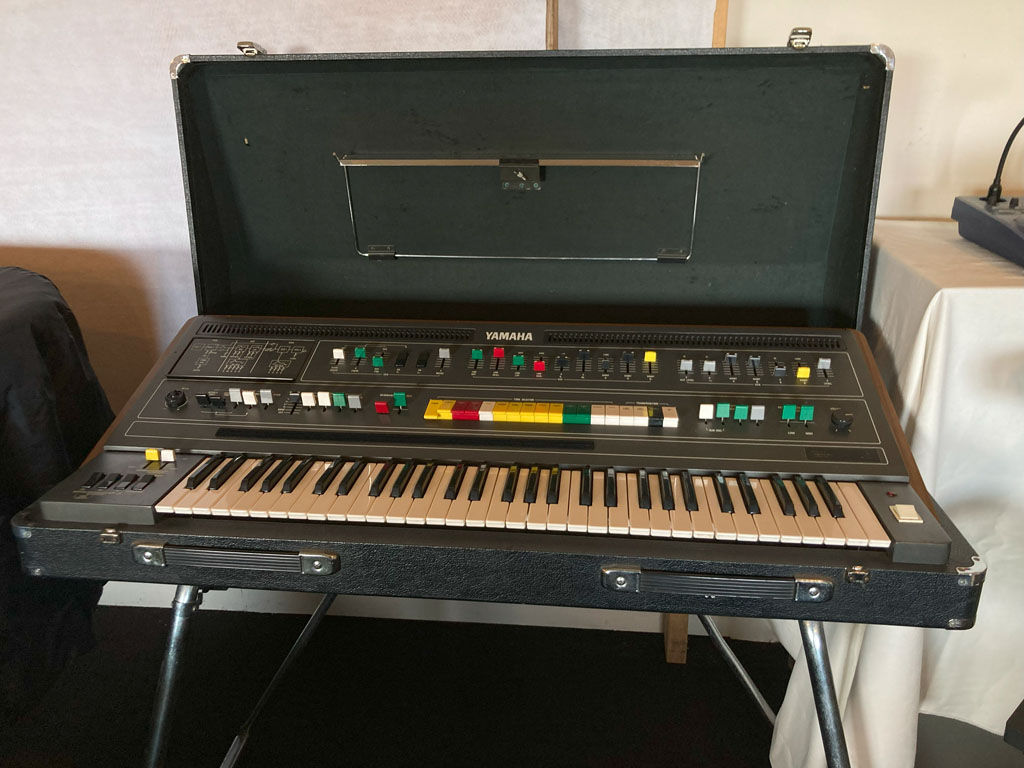
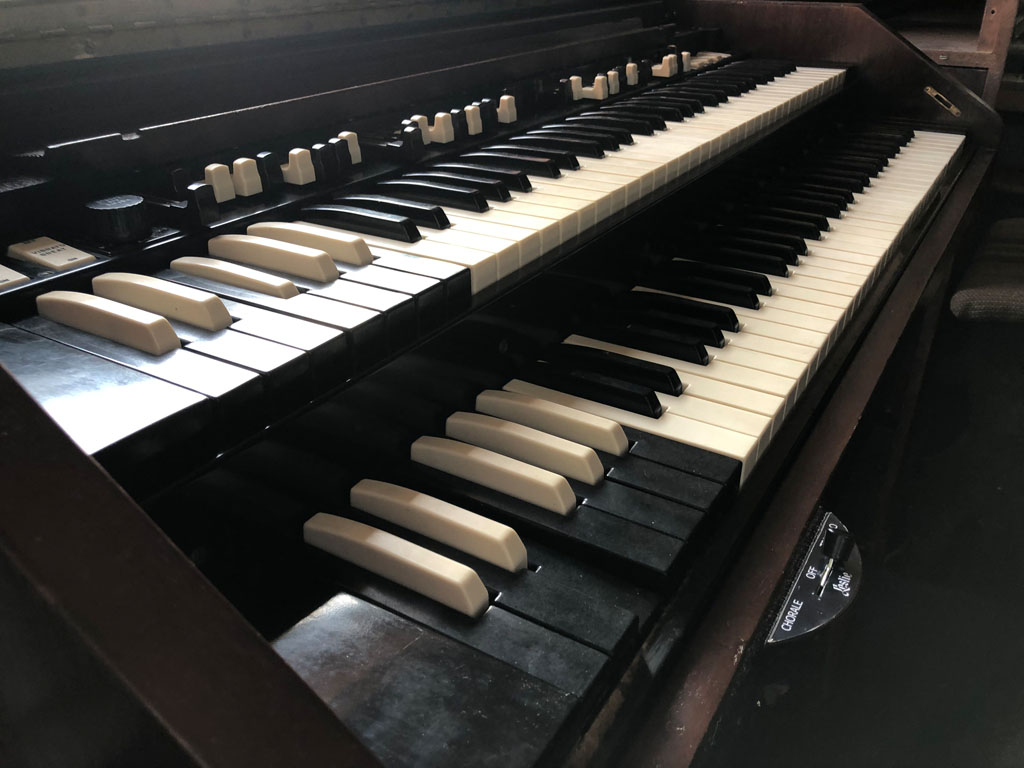
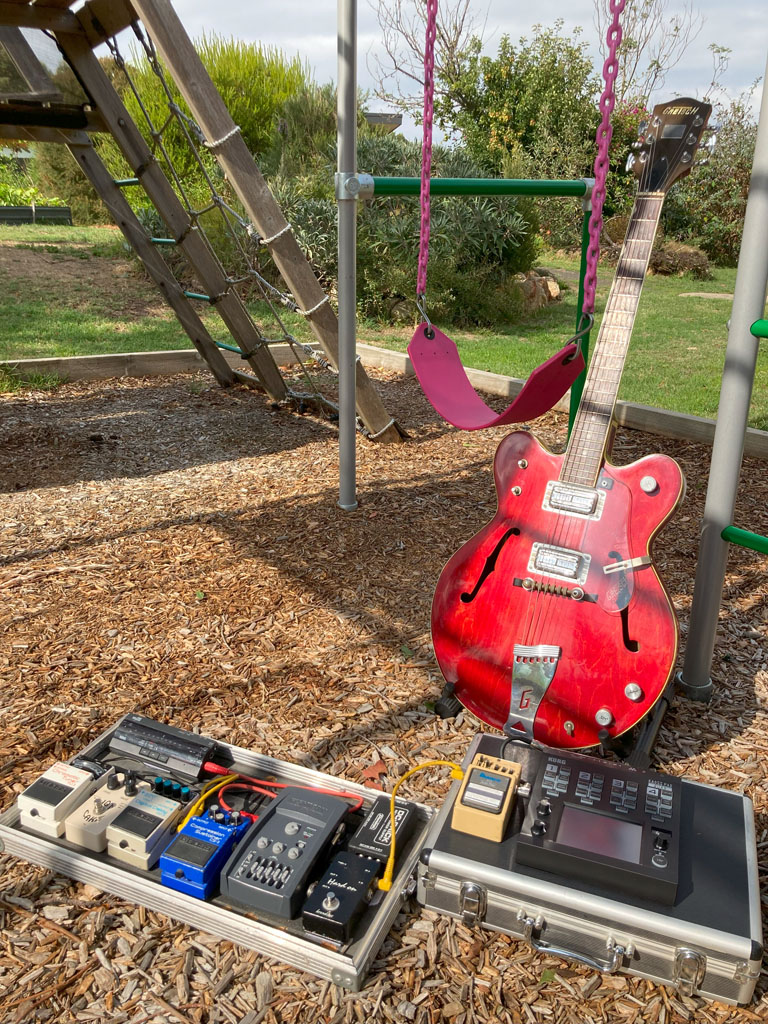
Step By Step
I propose doing this in small steps with no expectations. This means: no big plans, no talking up the idea with others, and definitely no mouthing off about how you’re going to “embark on a new solo album” or “continue where the band left off.” This is your ego talking – don’t give it a sniff. Keep the process simple, keep things on the down-low and don’t, whatever you do, put pressure on this to ‘be something’.
Not everything has to be something.
And if you can, try to make the experience all about the here and now, not the past. We’re trying hard during this exercise to keep our minds on the present, not the past or indeed the future. This is all about being in the moment, and to hell with everything else. You don’t want your adult brain racing off ahead to plan recording sessions, distribution deals or band names. It’s all about you and your instrument, remember? Not all the palaver that you so quickly want to add to the scenario.
Shut Up & Setup
If you can, find a space in the corner of a room somewhere, and simply setup some of the old instruments. If you can turn them on, tune them up, or dust them off, depending on what the instrument requires, do that first. The key here is to keep it simple, and again, avoid getting your ego involved or adding too much technical complication at first.
For instance, don’t – whatever you do – try to setup a complicated MIDI system or reboot your 20-year- old computer looking for long lost multitrack files, or you’ll immediately get tangled in a web of software mayhem or upgrades to X, Y and Z. This will spell certain doom for your fragile spark of interest!
And don’t allow this new foray into music exhaust you either, or it will only turn this new musical experience into yet another chore, and we don’t want that! As adults, we have plenty of those already; we don’t need another added to our list.
This is all about taking a break from the world around you and immersing yourself in the sounds of the instruments, without the whole thing turning into a big deal. We want this experience to stay small; contained both physically and emotionally, so that it’s enjoyable, and dare I say it, fun.
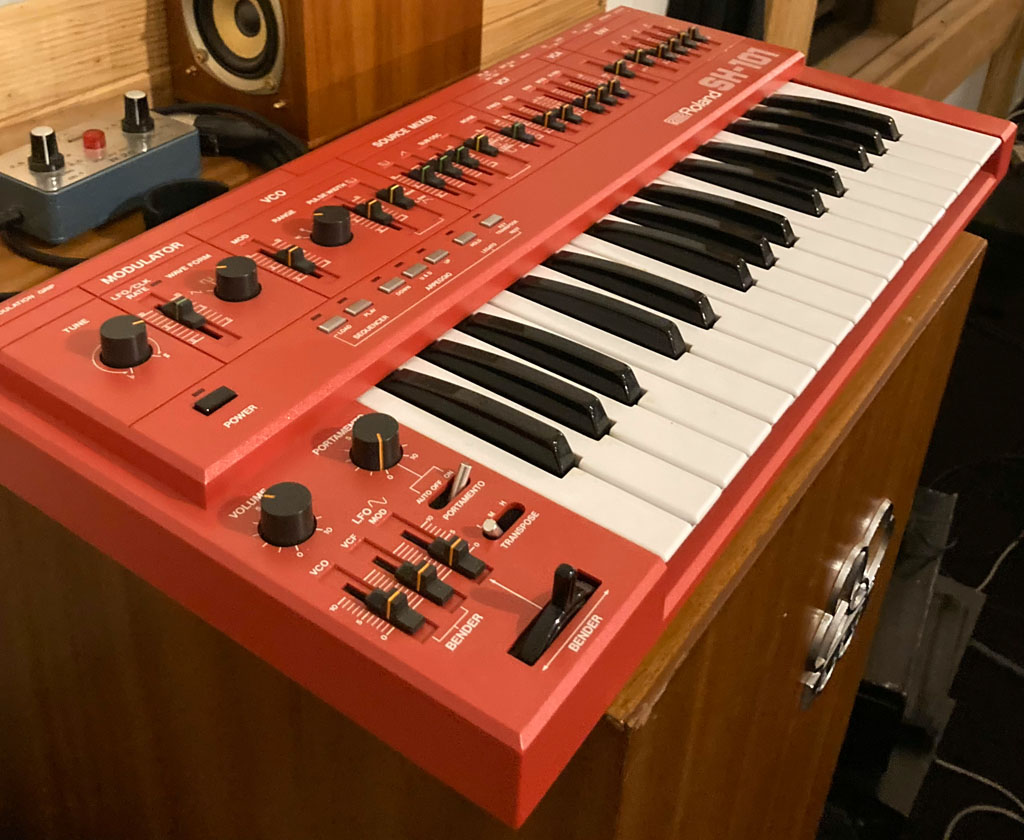
Dust Off Or Recap?
If it becomes clear that your instruments need a service or a setup, send them off to a reputable repairer the moment you spot a problem (I know lots of the best service techs, too, if you need names).
You don’t want to start playing with something that’s going to kill an instrument stone dead or start a fire. Instruments that have been stored away for decades, in particular, will often need a once-over from a service tech, so get that done if something starts misbehaving. Once the gear is back and given the green light, you can start noodling without some part of your brain feeling concerned that something’s wrong.
In the end, life is too short for the capacitors in your old synths to die from sheer neglect, or the old battery to leak onto the circuit board and kill it. Don’t add your name to the long list of people who have contacted me over the years to say that they suspect their old instrument won’t turn on anymore.
Play your instruments for the sheer enjoyment of playing whenever you can from now on… and remember: no expectations. Leave your ego at the door. If getting back into it eventually leads to something more expansive or collaborative later on down the track, well and good. Just don’t start with that expectation. Conversely, if later you decide that the instrument you once prided yourself in owning is no longer your thing; that you feel no attachment to it whatsoever, at least this discovery session will have dissolved the feeling that a ghost lurks in your closet, and every time you go near it you feel haunted by your musical past. If that’s the case, maybe you can give your old instruments to your kids (assuming you have any), or you can just sell the instruments on.
Just don’t leave them in the closet. They don’t deserve to die alone in a road case.
Andy Stewart owns and operates The Mill in Victoria, a world-class production, mixing and mastering facility. He’s happy to respond to any pleas for pro audio help…
Contact andy@themill.net.au or www.themill.net.au.
Subscribe
Published monthly since 1991, our famous AV industry magazine is free for download or pay for print. Subscribers also receive CX News, our free weekly email with the latest industry news and jobs.





